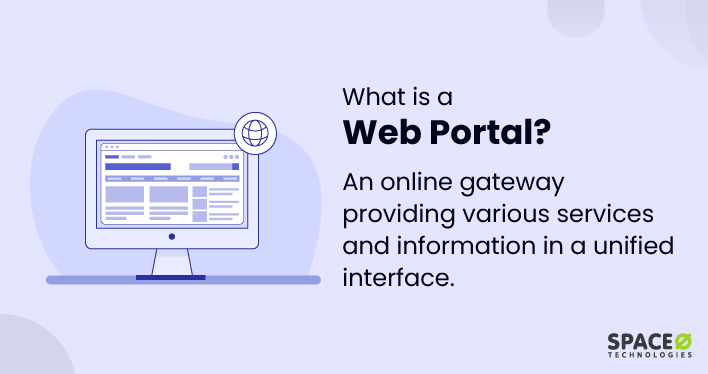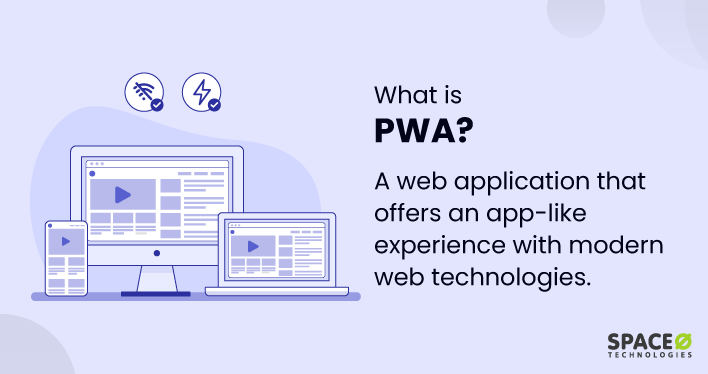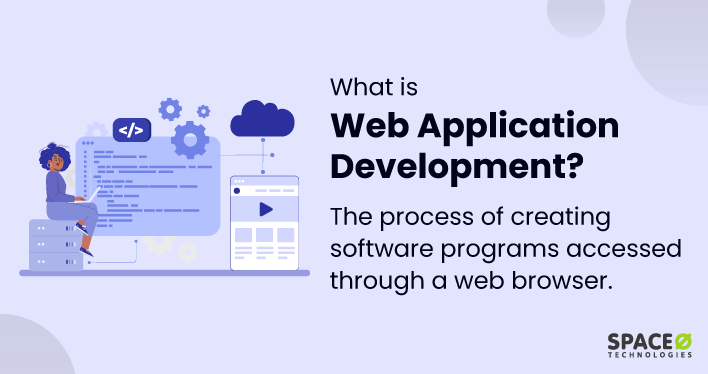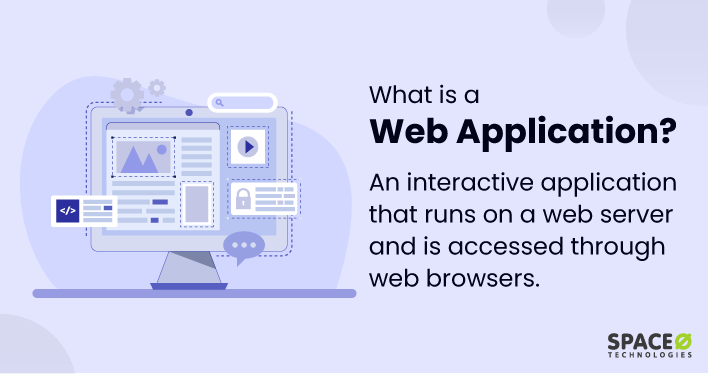Table of Contents
What is a Web Portal?
A web portal is a specially designed website that brings information from diverse sources, like emails, online forums, and search engines, together in a uniform way. It provides a single point of access to various types of information and services, facilitating users to find, share, and collaborate on content.
- University’s web portal allows students to access their classes, grades, library, and email from a single page application.
- A bank’s portal allows the user to access different features of money transfers, balance inquiries, and user details from one centralized application.
For example:
The above examples show the type of features that can be included during custom web portal development. If you are curious to know how these web applications are developed, here is a complete blog on how to create a web portal. From this blog, you will know the steps, time, and cost to build a web portal.
However, there are different types of web portals with various uses and advantages. Let’s understand.
What are the Types of Web Portals?
There are several types of web portals, each serving different purposes and audiences. Here are a few of the many portals available on the Internet:
| Types of Web Portal | Web Portal Examples | Description |
|---|---|---|
| Horizontal Web Portals |
| A horizontal web portal platform offers a wide range of general content, services, and links, catering to a broad audience. This platform includes news, email, and community tools |
| Vertical Web Portals |
| Vertical portals is a portal that focuses on a specific industry or topic, providing specialized information, resources, and services. |
| Government Portal |
| Government portals are designed to enable users with all needful information about specific data, services, or announcements. |
| Student Portals |
| Student portals are also known as knowledge management portals used by educational institutions to offer students access to course materials, assignments, grades, and communication tools. |
| Corporate Portals |
| Corporate portals are online business portals that store, process, and maintain data on one single platform. It helps businesses to streamline workflow processes of customer services. |
| Vendor Portals |
| Vendor portals help in streamlining supply chain processes by aggregate data and managing interaction with suppliers including procurement, orders, invoices, and collaboration. |
| Patient portals |
| Patient portals offer patients access to personal health records, virtual medical personnel, appointment scheduling, prescription management, and communication with healthcare providers. |
If you want to learn more then read our post on web portal examples. This might give you inspiration for your next web app project. Knowing the different types of web portals, it’s time now to discuss the benefits of web portals in the next section. Let’s explore.
6 Top Benefits of Web Portal
Web portals offer numerous benefits for both businesses and users. Here are the 6 top advantages of using web portal:
Centralizes Information
Web portals offer a central hub for diverse information, from news to profiles, streamlining user access and reducing the need for multiple searches across sites.
Improves Communication
Web portals include messaging, forums, and comments to enhance user interaction and company-customer communication, nurturing community and connections.
Offers Data Collection and Analysis
Web portals aid data collection and analysis, tracking user behavior for insights. This informs decisions on management systems, enhancing content effectiveness and customer preferences.
Integrates with Multiple Applications
Web portals integrate with systems like CRM or ERP, enhancing data consistency and reducing manual data entry in online business operations.
Offers Personalization
Web portals often allow for a high degree of personalization. This means that each user can tailor their portal experience to their specific needs and preferences.
Saves Cost
By automating various processes and reducing the need for manual tasks, web portals can result in significant cost savings for businesses.
Provides 24/7 Access
Web portals are typically accessible 24/7, allowing users to access information or complete tasks at their convenience.
With the various benefits of web portals, it is important to discuss the best practices that can be advantageous while developing web portals. So, let’s check the best practices of web portals below.
6 Best Practices of Web Portal Development
Here are the 6 best practices that one should use while developing a web portal to make user experience user-friendly.
- Ensure a simple and intuitive interface that helps the users to navigate relevant information easily.
- Optimize the portal that can be easily operable from both desktop or mobile devices.
- Provide personalization services based on user preference and behavior.
- Keep your content management up-to-date by providing latest information and accurate data.
- Keep your portal upgraded with new features consistently.
- Implement data analytics and use aggregated data to improve your web portal performance.
A web portal is a personalized website that offers user-specific content, catering to specific information needs on one platform. If you are not sure how a portal differs from a website then read our post on web portal vs website with complete differences. This will help you get clarity on both kind of web applications.
Vertical portal, horizontal portal, and governmental portals are few of the most popular web based platforms that offer streamlined digital experience to users by being easily accessible from desktop or mobile device.
The key advantage of web portals lies in their tailored content, boosting customer engagement and delivering a comprehensive customer experience.






